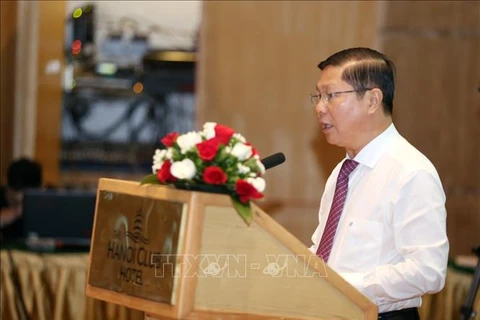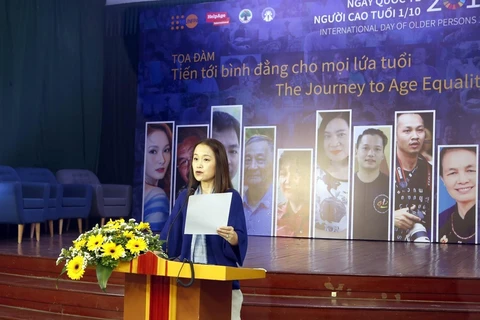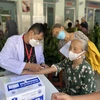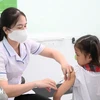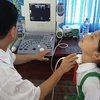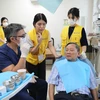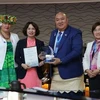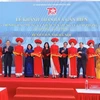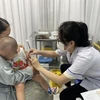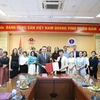Hanoi (VNS/VNA) - A 10-year healthcare programme for the elderly will start in Vietnam next year as part of the Government’s response to the country’s fast-ageing population.
Prime Minister Nguyen Xuan Phuc has approved the healthcare programme, under which authorities at all levels will be required to develop planning and arrange funding for elderly healthcare by 2025. This funding will be maintained until at least 2030.
Over the next five years, at least 70 percent of elderly people aged over 60 and their caregivers will be informed about the programme and their right to care.
That percentage is expected to increase by 85 percent by 2030.
Under the programme, at least 70 percent of elderly people across the country will have medical check-ups once a year.
By 2025, 95 percent of the elderly will have health records, with that figure rising to 100 percent over the following five years.
Thanks to improved health records, it is expected that 70 percent of elderly people who have non-communicable diseases will be detected and treated by 2025.
All elderly people who require care will receive the support they need from their families or the community by 2025.
Intergenerational self-help clubs and other kinds of healthcare clubs will also be set up as part of the programme.
The Intergenerational Self-Help Club (ISHC) model - community-based organisations that promote healthy longevity through a variety of inter-generational activities - was first launched in Vietnam in 2006. There are now nearly 3,000 ISHCs nationwide with a total membership of around 160,000 people.
ISHCs carry out social and cultural activities to promote psychosocial health such as games, performances and home visits, and they promote life-long learning through monthly talks, study visits and intergenerational cross-learning and sharing on a broad range of topics.
They also focus on physical health by raising awareness of and promoting healthy and active lifestyles, for example, exercise, sports, hobbies, meditation and volunteerism, and thorough access to regular health screenings (monitoring weight and blood pressure), check-ups, treatment and insurance.
The model offers homecare services through volunteers.
In order to achieve these goals, leaders at all levels have been urged to pay more attention to elderly healthcare. Primary healthcare services, non-communicable diseases prevention and control, regular health check-ups and health monitoring for old people need to be improved.
Long-term healthcare models for old people are also expected to be developed.
Under the programme, those who deliver healthcare services for the elderly will receive further training. Geriatrics will be included in tertiary/ post-graduate training programmes at medical schools and universities.
Vietnam will also call for more resources for the programme, and is expecting increased engagement from the private sector.
Vietnam now has about 12 million elderly people aged from 60.
The country officially entered the "ageing phase" in 2011, and is among the most rapidly ageing countries in the world.
The proportion of older persons in the total population has increased to 11.9 percent, and one in nine persons was over the age of 60 in 2017.
According to projections from the General Statistics Office, the population of over 60-year-olds is expected to reach 21 million, accounting for 20 percent of the total population, by 2038, and 27 million, accounting for 25 percent of the population, by 2050.
According to the General Office for Population and Family Planning under the Ministry of Health, 65.7 percent of elderly people in rural areas are farmers with low or unstable incomes.
Up to 73 percent of them live without pensions, face multiple challenges and are dependent on their offspring.
Over 72 percent live with their offspring while nuclear families are an increasing trend in Vietnam, replacing traditional extended families.
“Living alone is a disadvantage for the elderly as when they get older, they tend to rely on family more," said Nguyen Doan Tu, head of the general office.
Moreover, their health limited them. With an average life expectancy of 73, they usually lived healthily to the age of 64, he said, adding that up to 96 percent of the elderly had illnesses, mostly chronic non-communicable diseases./.
VNA

